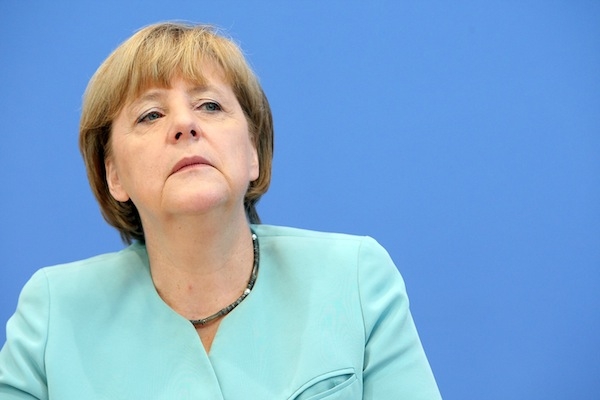One of the advantages for Theresa May in being the first foreign leader to visit the Trump White House is that other European government are eager for information about what he actually plans to do. Both Handelsblatt and Spiegel have good pieces detailing the German government’s concerns about its lack of contact with, and information about, the new administration.
Spiegel reports that an offer from Angela Merkel’s team for her to travel to the US at short notice to meet the new president has not yet received a reply. While the German Ambassador to the US’s last meeting with Jared Ksuhner, Trump’s son in law and—by general agreement—the most powerful figure in the new White House, ended with Kushner asking, ‘What can you do for us?’ So desperate has the Merkel Chancellery become for tips on the new president’s thinking that her staff have taken to passing round a 1990 issue of Playboy in an attempt to understand his thinking on trade.
The German concern about Trump stems from three main things. First, Trump is reversing 60-odd years of US support for European integration. He often sounds like he’d quite like the EU to fall apart—which is, obviously, worrying for Germany. Then, there is his protectionist trade rhetoric; Germany had an almost $60 billion goods trade surplus with the US last year. To add to the German’s worries, some in the Trump team regard the Euro as a form of German currency manipulation. The Spiegel piece even talks about the possibilities of 15 percent tariffs on German goods under the 1974 Trade Act. Finally, there’s Trump’s desire for a rapprochement with Russia and his criticisms of Nato. As the Spiegel piece points out, it’ll be hard for Merkel to keep the EU united on sanctions on Russia if Trump maintains his position.
For May, the challenge will be to show EU leaders that she can both help move Trump into a better place on Russia and Nato while reminding them of how much more important the British contribution to European security will become if Trump does follow through on his isolationist rhetoric. At the same time, she’ll also want to demonstrate that she can get the wheels in motion for a post-Brexit US / UK free trade deal. But being the first foreign visitor to the White House gives May an opportunity to make progress on both these fronts.







Comments